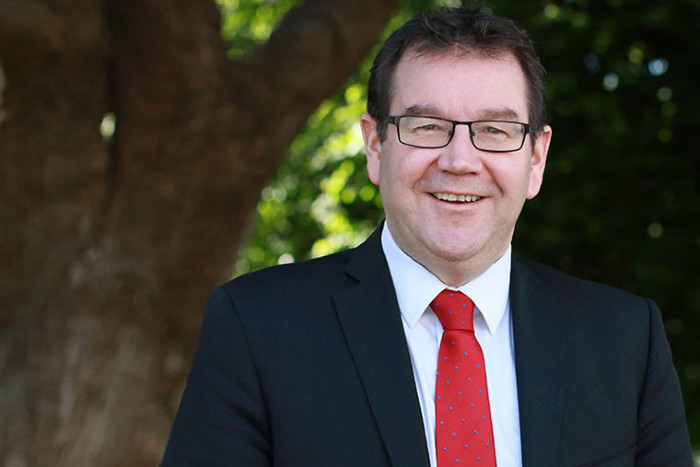Mayor Tim: ‘People desperate to get a property’
Rowan Schindler
11 February 2021, 5:00 PM
 Central Otago lacks affordable housing, and District Mayor Tim Cadogan believes that needs to change.
Central Otago lacks affordable housing, and District Mayor Tim Cadogan believes that needs to change. Central Otago District Mayor Tim Cadogan believes affordable housing is one of the biggest hurdles facing the Council and community.
Last week, Council agreed in principle that it has a role to play in affordable housing in the district.
Mayor Tim says “house prices have, totally against predictions, got even higher in Central since lockdown”.
“This is alongside what has been seen across the country.
“I am hearing anecdotally of houses being bought sight-unseen by people desperate to get a property here, with many simply being priced out.”
Mayor Tim believes the paradigm has shifted from housing being affordable to all, towards more and more people having multiple investment properties and pricing others out of the market as a result.
“Many claim this is a supply and demand issue but evidence suggests that isn’t the case, not nationwide anyway, as there is roughly the same number of houses per person in New Zealand as there has generally always been.
“But back when I was a kid most people owned one home and very, very few owned two whereas now that is far from the case.
“Housing has become a very good and safe investment with the consequence that quite a few people own quite a few houses and many people don’t own one.”

Central Otago District Mayor Tim Cadogan believes there needs to be more affordable housing options in Central Otago.
Mayor Tim says there does need to be more supply, not just of houses, but the right houses.
“Generally in Central we have what is called “meat and three vege” housing; standard 3 or 4 bedroom homes on an 800m2 or similar sized section.
“We have little or no smaller housing options such as semi-detached or apartments or small houses on small sections and these options are generally not being built either.
“Developments are by and large meeting one section of the market and smaller, cheaper options are not being presented.”
On a national scale, Mayor Tim feels a capital gains tax that will make investing in housing taxable the same as other investments is something that should be re-explored.
“It frustrates me that much of our supposed economic growth is based on an upward spiral of house prices instead of capital being used to actually produce something.
“Locally, encouragement through council policies for smaller housing needs further exploration.
“Council’s move last week to get behind affordable housing in the district may in time allow for consideration of some brave and exciting design options which hopefully will not only meet a need, but will prove to developers that there are buyers for these houses and to some in the community that their inherent belief that small houses are unattractive houses is wrong.”
He says the market has been rampant for more than a decade now and the Government has a hell of a job to turn it around.
“It also needs to be conscious of not slashing values of the homes people live in while trying to cool the market nor allowing interest rates to rise too high, slowing other parts of the economy.”
Prime Minister Jacinda Ardern addressed the housing crisis at her weekly post-cabinet conference.
When asked about the housing crisis, she says the Government is looking at what it can to “tilt the playing field towards first home buyers”.
“No one wants to live in a country where the only way that you can move into your own home is if your parents can help you,” she says.
Earlier, Finance Minister Grant Robertson says the Government plans to clamp down on property speculators to address the housing crisis.
After coming to power in 2017, in part on a promise of delivering more affordable housing, and KiwiBuild, the Government instead presided over continued house-price inflation, supercharged by COVID-19, which saw supply fall as people hunkered down and even more money chased even fewer houses.

Finance Minister Grant Robertson says the investors and speculators have driven the price of housing higher.
House prices have soared since the pandemic, with the nationwide median house price up 19 per cent in December from a year earlier, defying economist predictions for a decline of between 5 and 10 per cent.
“We’ve seen how the effects of rising demand for property by speculators and investors has blown those mid-year projections for prices to fall, out of the water,” Grant Robertson says.
“The clear intention here is to take the heat out of the housing market. Eventually what we will see is some moderation of house prices.”
He says the Government will announce a rolling series of measures in late February, to address the housing crisis, starting with moves to control demand.
“We all know that building more houses, particularly affordable houses, is critical,” he says. “But we also can do more to manage demand, particularly from those who are speculating.”
Robertson did not provide further details on the plans, but says it was time for “bold action”.
“The market has moved quickly and rapidly in a way that is not sustainable,” he says. “We have to confront some tough decisions, and we will do that.”
